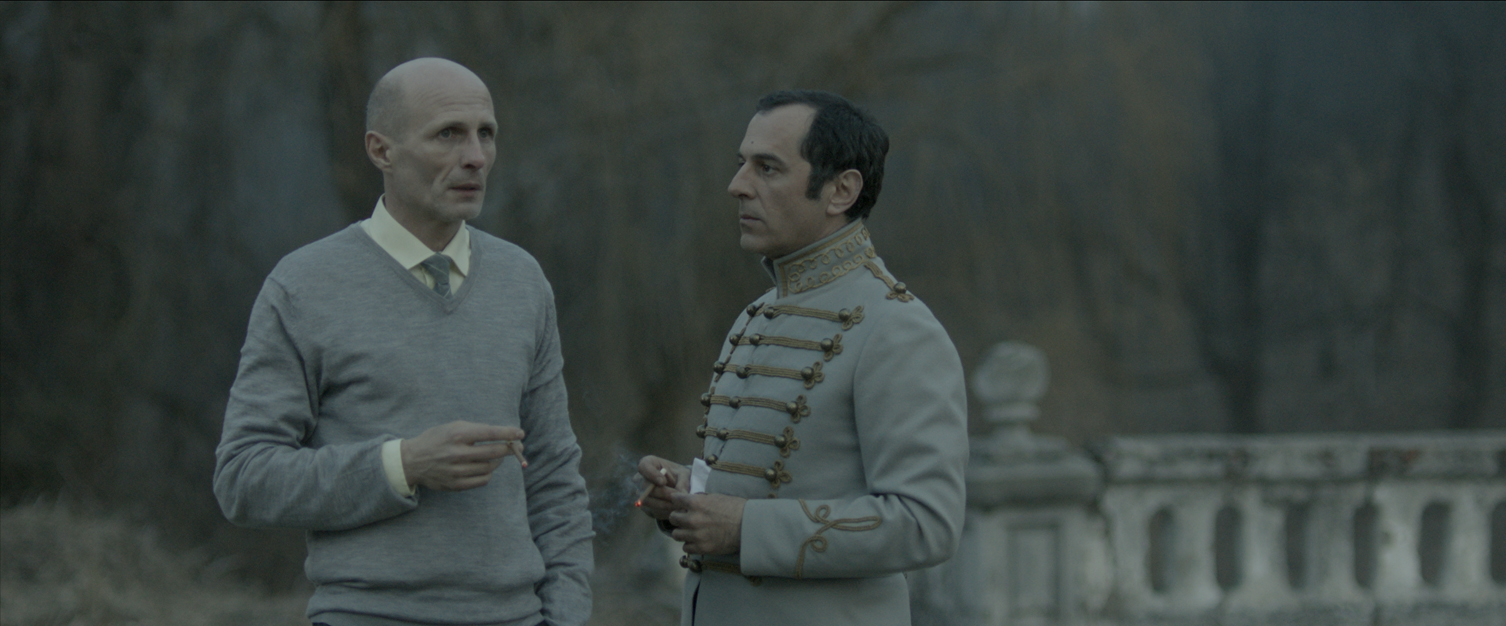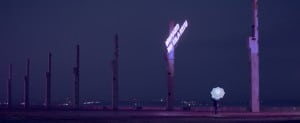
Director/Writer: Alexey German Jr.
138mins Apocalyptic Drama Russia/Ukraine/Poland
The end of times never looked as pretty as they do in Alexey German Jnr’s fourth feature UNDER ELECTRIC CLOUDS, unveiled in competition this week at the 65th Berlinale. German, whose most recent directorial credit prior to this was in helping to complete his late father’s epically grotesque swansong HARD TO BE A GOD, has made a similarly sprawling if less assaultive account of the times we live in.
 But while dad’s final film (no more mentions after this, I promise) was a science fiction work whose explicit allegorical links to our present-day transglobal crisis were half-cloaked in a tale set in a far-off planet suffering through its middle ages, UNDER ELECTRIC CLOUDS doesn’t afford our suspensions of disbelief the luxury of such temporal displacement: his film takes place in 2017, on the centenary of the Bolshevik Revolution. Despairing through an endless winter characterised by gentle snow and an ecru-puce atmospheric haze, its ensemble of characters do not, however, have much to draw upon in terms of an industrialised class politically conscious enough to enact the wholesale change that is so evidently needed. Lenin is merely a statue here: the new future of post-communist Russia is a half-constructed building soon to be demolished.
But while dad’s final film (no more mentions after this, I promise) was a science fiction work whose explicit allegorical links to our present-day transglobal crisis were half-cloaked in a tale set in a far-off planet suffering through its middle ages, UNDER ELECTRIC CLOUDS doesn’t afford our suspensions of disbelief the luxury of such temporal displacement: his film takes place in 2017, on the centenary of the Bolshevik Revolution. Despairing through an endless winter characterised by gentle snow and an ecru-puce atmospheric haze, its ensemble of characters do not, however, have much to draw upon in terms of an industrialised class politically conscious enough to enact the wholesale change that is so evidently needed. Lenin is merely a statue here: the new future of post-communist Russia is a half-constructed building soon to be demolished.
Ranging from a Kyrgyz worker to two teen heirs of a deceased father’s estate to a museum guide and culture expert, to a jobless architect (“incredibly trendy, but meaningless”), German’s ensemble of unfortunates wander somewhat listlessly through the bleak, icy landscapes trying to figure out just what’s gone wrong. “The past is gone,” one of them notes. “We can build a new world, we just need to get rid of the dead weight.” Such lines, coming in a film whose opening ident ominously reveals funding from Russia’s Ministry of Culture, are at the very least ambiguous in intention. If the Brechtian mouthpieces don’t quite expose the film’s propagandistic agenda, German’s own penchant for half-baked ideas can often work against the film. (This is not to claim the film has an overtly propagandistic agenda; nor is it, of course, to claim it isn’t confused.)
Is this about the fall of capitalism, the ruthless world of real estate, or both? (The two, surely, are linked.) Perhaps the closest the film comes to addressing the root causes or results of our impending doom is in its nods to global warming (“In twenty years the climate here will be tropical”). “We enter a new era armed with historical experience,” one character claims. But there’s scant evidence here that the Russians can help themselves out of their rut. Multiple nods to China, the nation to which failing capitalist economies have looked with hopeful curiosity in recent years, offer little optimism: that too is in crisis. Japan doesn’t look much better. (Pepsi and Coke survive like unscathed ancestors, which might give some indication as to where Putin’s Russia needs to aim.)
Though it’s perhaps too stylised to be fully engaging as a drama, however, there are certainly things to admire, even love, about UNDER ELECTRIC CLOUDS. To a certain degree, this seven-chapter marathon works through its own lethargies in often teasing fashion, hinting at deeper truths about our ongoing catastrophe. German shoots at times from afar, allowing his actors full bodily expression while zooming into them to such an extent that their movements are often obscured, if not negated. The film is at once expansive and claustrophobic. Sergey Mikhalchuck and Evgeniy Privin’s cinematography, conveying a half-abandoned world of mist and infrastructural failure, compensates for scenes that German only intermittently feels the need to direct. Indeed, the visual beauty is often at odds with the content – perhaps deliberately so – so considered are the visual textures in contrast to what is sometimes a directorial laziness. MICHAEL PATTISON
BERLINALE 5-15 FEBRUARY. ALL OUR COVERAGE IS UNDER ‘BERLINALE 2015’